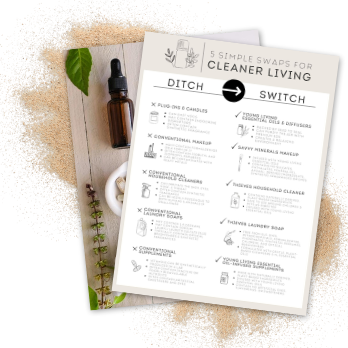 The Health Benefits of Fresh Milled Bread
The Health Benefits of Fresh Milled BreadWhy It’s Time to Rethink What’s in Your Loaf
In a world where convenience often trumps quality, bread has become one of the most misunderstood staples on our table. But when we return to the roots of baking—with fresh, whole grains—we rediscover the deep nourishment bread was always meant to provide.
A Brief History: From Whole Grain to White Powder
Up until the late 1800s, all flour was freshly milled from whole grains. It was ground in small batches and used quickly, while it still held all the nutrients God placed in the wheat kernel: the bran, germ, and endosperm.
When modern roller milling came along, the process was changed. The bran and germ were stripped away to increase shelf life and reduce spoilage. All that remained was the starchy white endosperm—what we now call white flour.
It looked cleaner, baked softer, and lasted longer. But in the process, we lost most of the nutrition.
What’s Missing in Processed Flour
That white flour in your sandwich bread or store-bought bagel? It’s missing:
• Fiber for gut health and digestion
• B vitamins like folate, niacin, and thiamin
• Minerals such as iron, magnesium, and zinc
• Vitamin E and healthy fats that support brain and heart function
Though manufacturers “enrich” flour with synthetic vitamins, it’s no substitute for the real, living nutrition of whole grains.
Why Fresh Milled Bread is a Game Changer
Bread made with freshly milled flour is a return to nature’s design. When all three parts of the grain are kept intact and milled just before baking, bread becomes a nourishing food again—full of:
• Real vitamins and minerals
• Natural oils that support hormone and brain health
• Fiber that keeps your gut microbiome thriving
• Enzymes that aid digestion and make nutrients more bioavailable
Fresh milled bread doesn’t just feed your body—it fuels your life.
A Better Way Forward for Our Families
In an age of fast food and empty carbs, many families are unknowingly feeding their children bread that’s been stripped of nearly all nutritional value. It’s time to turn the tide.
Start reading labels. Ask your local baker if they mill their own grains. Consider learning how to bake with whole grains at home. Even if you’re not baking yourself, you can make intentional choices about what kind of bread is on your family’s table.
Spread the Word
Help others understand the truth behind modern flour and the benefits of fresh milled bread. Share what you’ve learned. Talk about it at the farmers market, with friends at church, or over coffee. Our collective choices shape the market. When we start demanding better food, better food becomes available.
Let’s bring bread back to what it was meant to be: real, nourishing, life-giving- the staff of life!

The Gut and Sourdough: Why Your Gut Will Thank You
In recent years, there’s been a growing understanding of how vital gut health is to our overall well-being. The gut, often referred to as the "second brain," plays a crucial role in digestion, nutrient absorption, and even our immune system. A healthy gut can mean more energy, fewer digestive issues, and improved mental clarity.
One way to support gut health is through fermented foods, and sourdough bread is a particularly powerful option. Here’s why sourdough, especially when traditionally fermented, can be a game changer for your digestive system.
The Science of Fermentation and Gut Health
Sourdough bread is made using a fermentation process that breaks down the sugars in the flour, allowing the growth of natural, beneficial bacteria known as lactic acid bacteria. This not only enhances the flavor but also makes the bread easier to digest. The fermentation process lowers the phytic acid content in the grains, which in turn improves nutrient absorption.
These beneficial bacteria can act similarly to probiotics, supporting a healthy balance of gut flora, which is essential for digestion and overall gut health.
IBS and Gluten Intolerance: Can You Eat Sourdough?
If you struggle with Irritable Bowel Syndrome (IBS) or gluten intolerance, you’ve probably been told to avoid bread, especially wheat-based products. However, there is compelling research that suggests sourdough can be a better alternative for people with these conditions.
Studies have shown that the long fermentation process in sourdough can break down gluten proteins more effectively than other forms of bread. This makes the bread more digestible and less likely to cause symptoms in people with gluten sensitivity. While it’s important to note that traditionally fermented sourdough is not suitable for those with celiac disease, many people with IBS and non-celiac gluten sensitivity report being able to enjoy sourdough without the usual discomfort.
One study published in the journal Applied and Environmental Microbiology found that people with IBS tolerated traditionally fermented sourdough better than commercially produced bread. The slow fermentation process was shown to reduce the FODMAPs (a group of short-chain carbohydrates that can trigger IBS symptoms) found in wheat. This means sourdough could be a viable, gut-friendly option for many who thought bread was off the table.
Why Traditional Fermentation Matters
Not all sourdough is created equal. The bread I make is traditionally fermented, allowing the dough to rise slowly over many hours. This gives the natural bacteria and yeasts time to work, fully breaking down the carbohydrates and gluten, enhancing not just the flavor, but also the health benefits.
I use premium flours that contain higher levels of nutrients and are free from unnecessary additives, which further supports the natural fermentation process. The result is a bread that is flavorful, nutritious, and easier to digest for many people—even those with gut sensitivities.
Why Sourdough Is a Great Addition to Your Diet
Adding traditionally fermented sourdough bread to your diet can have multiple benefits:
- Better digestion: The fermentation process makes it easier for your body to digest.
- Increased nutrient absorption: Fermentation reduces phytic acid, allowing your body to absorb more nutrients like zinc, magnesium, and iron.
- Support for gut health: The natural bacteria in sourdough act as a mild probiotic, promoting a healthy balance in your gut flora.
As more people become aware of the importance of gut health, sourdough offers a delicious way to nurture that balance. If you’re looking for a way to enjoy bread while supporting your digestive system, my traditionally fermented sourdough is a great place to start. Whether you have IBS, gluten sensitivity, or just want to support your gut health, sourdough could be the perfect choice for you!
When I first started on this journey to health, I researched like a maniac. Everything I read seemed to point to digestion. Well, that makes sense, right? Since our nutrition is what fuels us. But that is where the confusion begins--what is good nutrition? In my research and hopping from one "good nutrition book" to another I learned...well I learned eating isn't as simple as it should be! There is no one size fits all when it comes to diet. We all have different ideas on that, however, no matter what we eat our gut needs to be healthy to work at turning that nutrition into usable fuel. So that is where I begin. Look for the next few blogs to be about 💩. 🤪 I meant our gut.










 Meet Me on Social Media
Meet Me on Social Media




